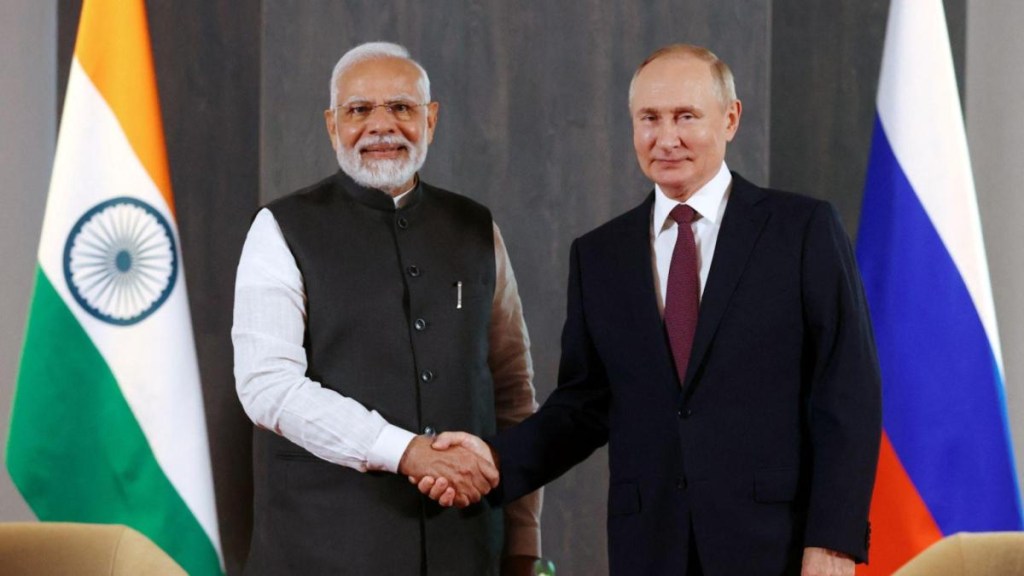Prime Minister Narendra Modi’s upcoming visit to Moscow on July 8-9 for the 22nd India-Russia Annual Summit is poised to address several crucial issues. Among these, two stand out: the predicament of Indian nationals stranded in Russia and the persistent trade imbalances between the two nations. These not only hold immediate significance but also have long-term implications for the India-Russia relationship.
Stranded Indian Nationals
One of the most pressing concerns is the situation of Indian nationals stranded in Russia. Reports have surfaced about approximately 30-40 Indians being duped into fighting for the Russian Army in the ongoing conflict against Ukraine. These individuals were allegedly lured with promises of lucrative jobs, only to find themselves in a war zone. Tragically, at least two Indians have lost their lives in this ordeal.
Foreign Secretary Vinay Kwatra confirmed that the Indian government has been proactive in addressing this issue, with around 10 Indian citizens already brought back home. However, the fate of the remaining stranded individuals remains uncertain. During his visit, PM Modi is expected to raise this matter directly with President Vladimir Putin, seeking a resolution that ensures the safe return of all affected Indian nationals.
This issue not only impacts the lives of those directly involved but also has broader diplomatic repercussions. The safety of its citizens abroad is a top priority for any nation, and how effectively India can secure the return of its nationals will be a testament to the strength and responsiveness of its diplomatic channels with Russia.
Trade Imbalances
Another critical issue on the agenda is the trade imbalance between India and Russia. Despite a robust economic relationship, there has been a significant disparity in imports and exports, with India often importing more from Russia than it exports. This imbalance has been a persistent issue in bilateral trade talks.
Foreign Secretary Kwatra highlighted the importance of correcting this imbalance. The Indian government is focusing on increasing exports to Russia across various sectors, including agriculture, industry, pharmaceuticals, and services. This effort aims to diversify and boost India’s economic footprint in Russia, thereby addressing the trade disparity.
Responding to media queries at the special briefing in New Delhi, Kwatra said that the bilateral trade target of US$25 billion, set for 2025, has already been surpassed, with trade reaching nearly $65 billion in 2023-24. This surge has been driven primarily by strong energy cooperation. However, according to the foreign secretary India aims to set even higher targets for the future, promoting deeper economic cooperation. Continuous discussions and negotiations are essential to achieving a more balanced trade relationship, which would benefit both economies.
Broader Bilateral Issues
Beyond these two primary concerns, the summit will provide an opportunity for the leaders to review a wide range of bilateral issues. These include defence cooperation, investment ties, energy collaboration, science and technology, education, culture, and people-to-people exchanges. The summit will also evaluate bilateral engagements within groupings such as BRICS, the Shanghai Cooperation Organisation (SCO), G20, the East Asia Summit, and the United Nations.
The annual summits have historically resulted in significant agreements and memoranda of understanding (MoUs). The previous summit in December 2021 saw the signing of 28 MoUs and agreements, alongside a joint statement titled “India-Russia Partnership for Peace, Progress and Prosperity.” The upcoming summit is expected to yield a series of outcome documents that will further solidify the bilateral relationship.
Diplomatic Continuity
The regularity of high-level meetings between Indian and Russian leaders underscores the importance both nations place on their relationship. The two leaders last met in 2022 in Samarkand during the SCO Summit and have maintained contact through several telephonic conversations. Additionally, bilateral exchanges between foreign ministers and national security advisors have been frequent, reflecting the dynamic and ongoing nature of India-Russia relations.

